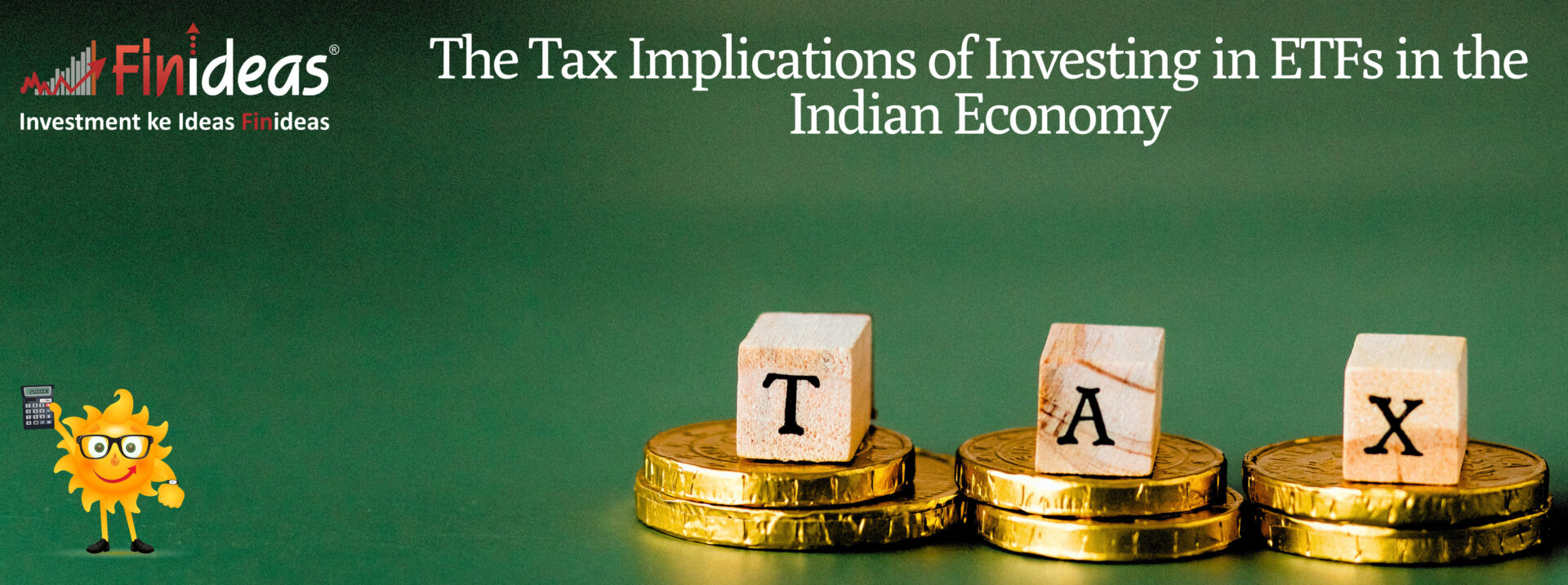Tax Implications of Investing in ETFs
Introduction:
Exchange-Traded Funds (ETFs) have gained significant popularity among investors in recent years, offering a diversified and cost-effective investment option. As investors in the Indian economy explore various investment avenues, understanding the tax implications of investing in ETFs becomes crucial. In this blog post, we will delve into the tax considerations associated with ETF investments in India, providing insights to help you make informed investment decisions.
1. Taxation of Dividends:
ETFs can generate income in the form of dividends. In India, dividends received from ETFs are subject to dividend distribution tax (DDT), which is typically paid by the fund house before distributing the dividend to investors. However, as of April 1, 2020, the DDT has been abolished. Instead, dividends are now taxable in the hands of the investor as per their applicable income tax slab rates.
2. Taxation of Capital Gains:
ETF investors should also be aware of the tax implications on capital gains. The tax treatment of capital gains depends on the holding period and the type of ETF, which can be categorized as equity-oriented or debt-oriented.
a. Equity-Oriented ETFs:
For equity-oriented ETFs, which have at least 65% of their assets invested in Indian equities, the following tax rules apply:
i. Short-term Capital Gains (STCG): If an investor holds the units for less than one year, the gains are considered as STCG and taxed at the rate of 15% (plus applicable surcharge and cess) as per the individual’s income tax slab.
ii. Long-term Capital Gains (LTCG): If an investor holds the units for more than one year, the gains exceeding Rs. 1 lakh in a financial year are considered as LTCG. As of the current tax laws, LTCG from equity-oriented ETFs are taxed at a flat rate of 10% (plus applicable surcharge and cess) without indexation benefits.
b. Debt-Oriented ETFs:
Debt-oriented ETFs primarily invest in fixed-income securities and are subject to different tax rules:
i. Short-term Capital Gains (STCG): If an investor holds the units for less than three years, the gains are considered as STCG and taxed as per the individual’s income tax slab.
ii. Long-term Capital Gains (LTCG): If an investor holds the units for more than three years, the gains are considered as LTCG and taxed at a rate of 20% with indexation benefits or 10% without indexation benefits, whichever is lower.
3. Tax Efficiency and Indexation Benefit:
Indexation benefit is available for long-term capital gains from debt-oriented ETFs. Indexation allows adjusting the purchase price of the units for inflation, reducing the tax liability. It helps investors reduce the impact of inflation on their tax liability, thereby increasing the tax efficiency of debt-oriented ETFs.
4. Systematic Investment Plan (SIP) and Taxation:
Investors who opt for a SIP in ETFs should note that each installment is treated as a separate investment. The tax implications will depend on the holding period of each SIP installment. Therefore, taxation will be determined based on the date of purchase and the holding period of each individual installment.
5. Tax-Saving Options:
Investors seeking tax-saving options can consider Equity-Linked Savings Schemes (ELSS), which are equity-oriented mutual funds that offer tax benefits under Section 80C of the Income Tax Act. ELSS funds have a lock-in period of three years and provide potential market exposure along with tax advantages.
Conclusion:
Investing in ETFs can offer diversification, liquidity, and cost-effectiveness to investors in the Indian economy. However, it is essential to understand the tax implications associated with such investments. By considering the tax treatment of dividends, capital gains, and the type of ETF (equity-oriented or debt-oriented), investors can make informed decisions aligned with their financial goals. Consulting with a tax advisor or financial planner can provide personalized guidance on tax planning strategies and help optimize your investment portfolio within the Indian tax framework.
Happy Investing!

